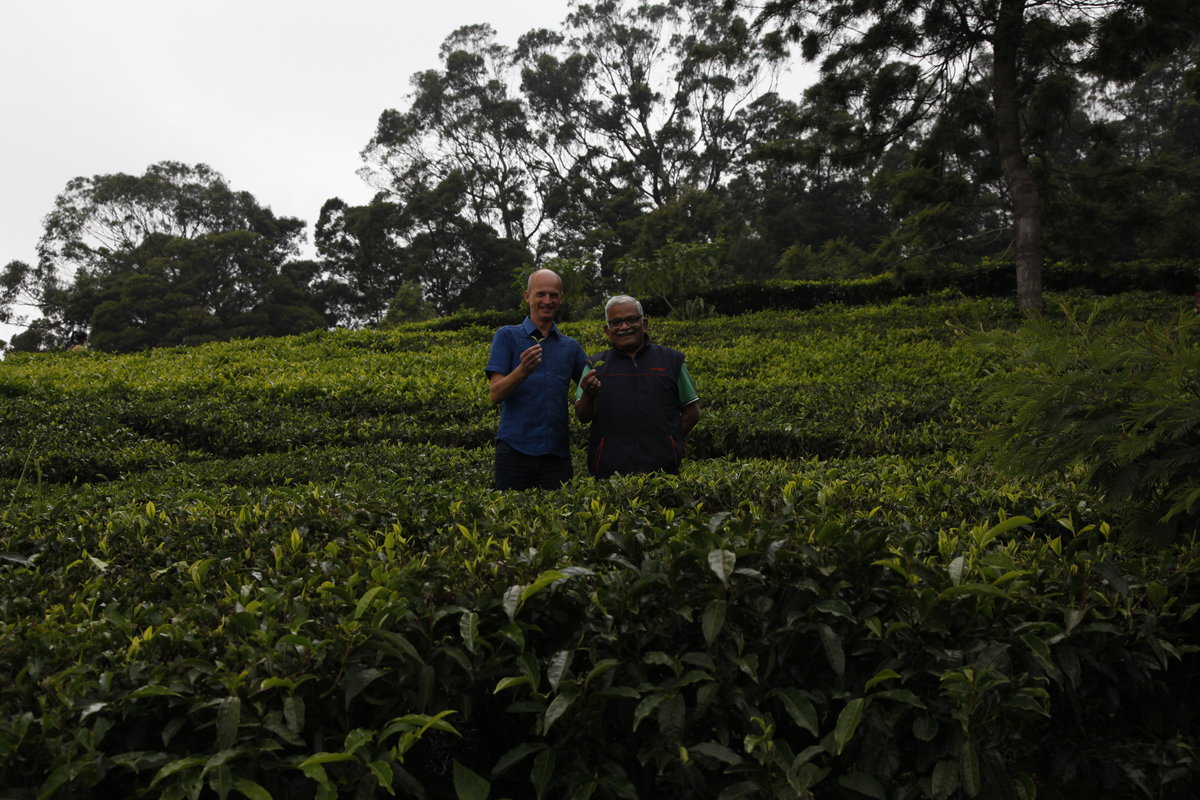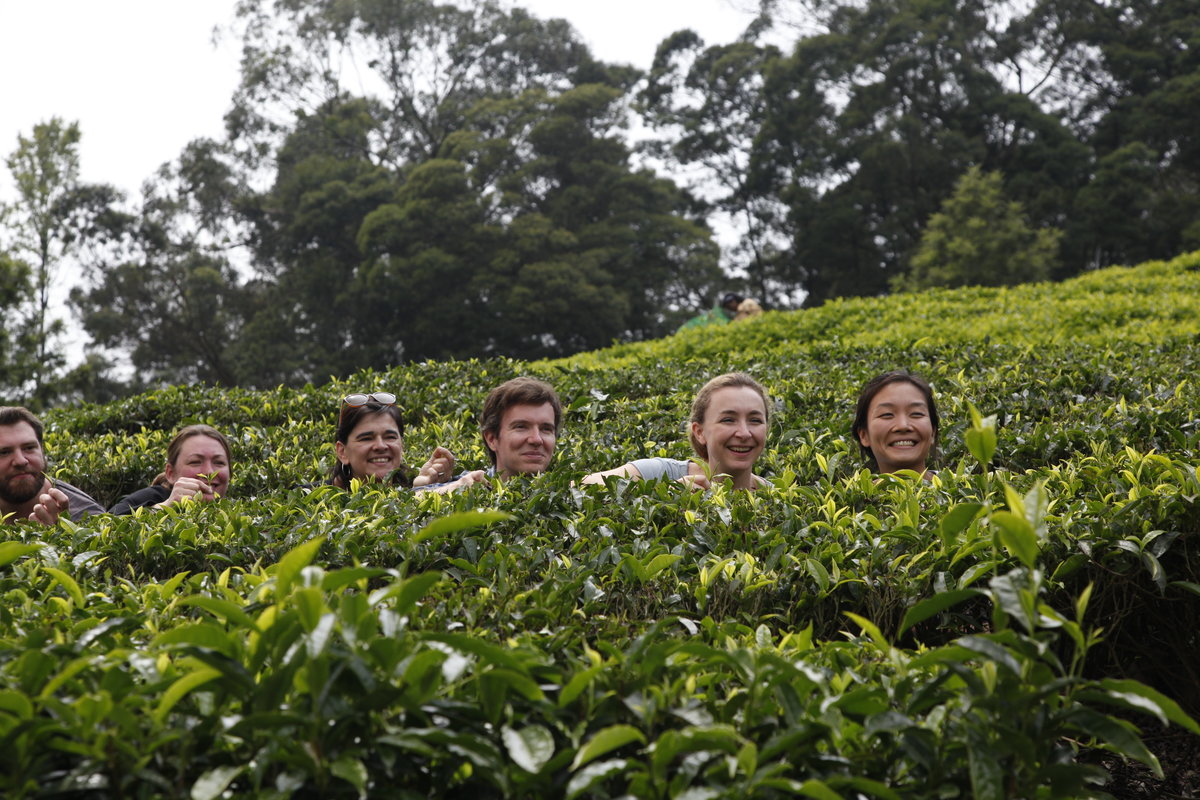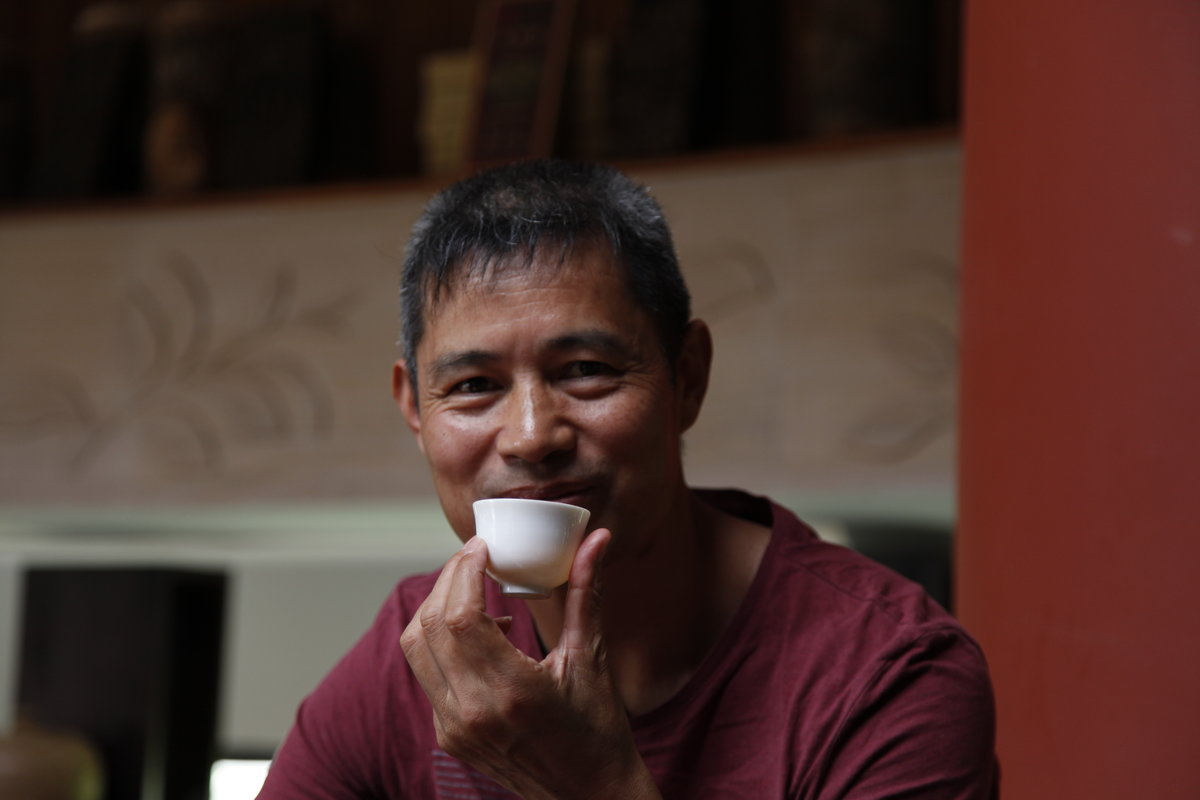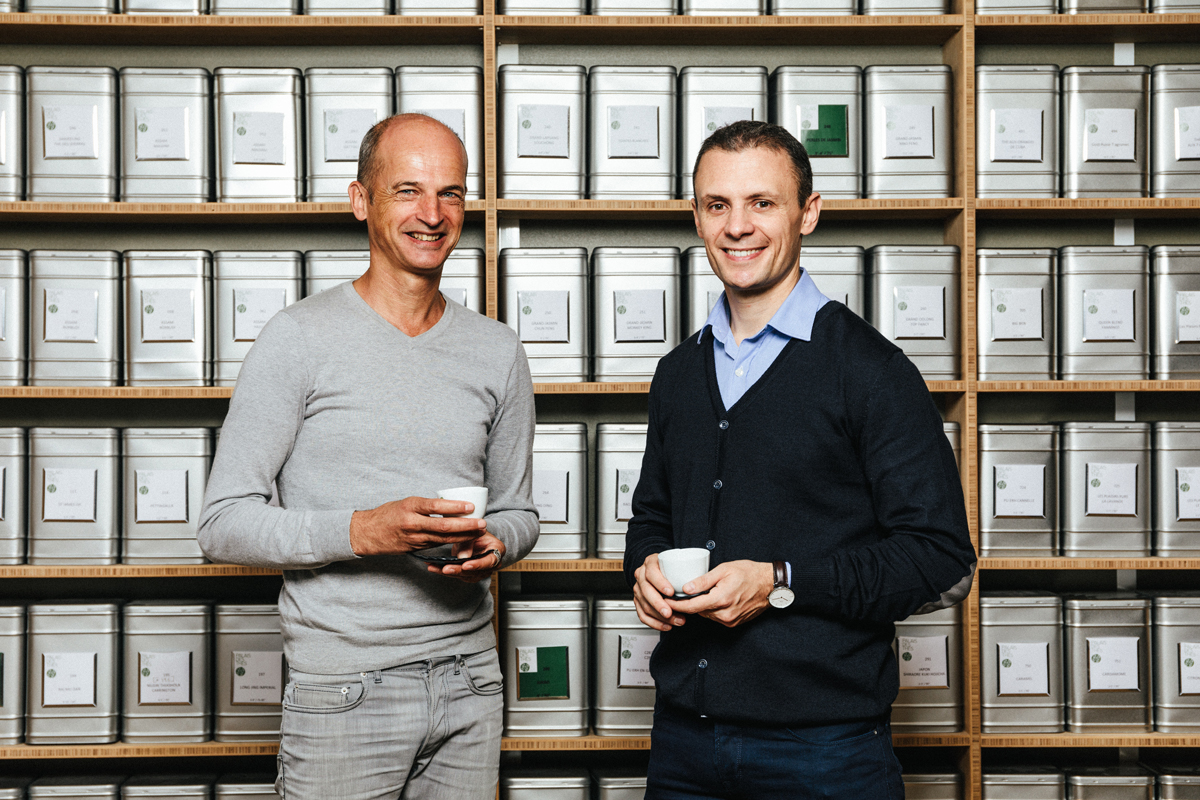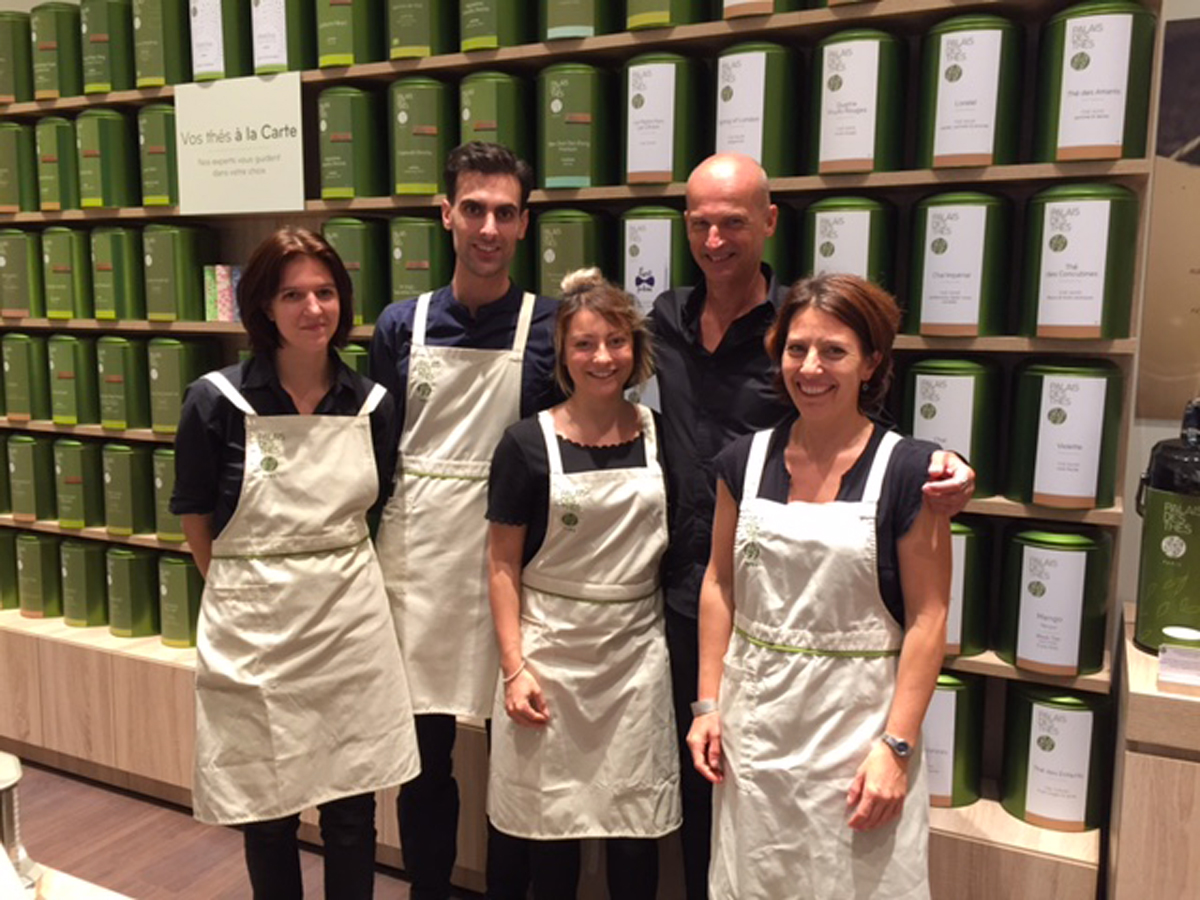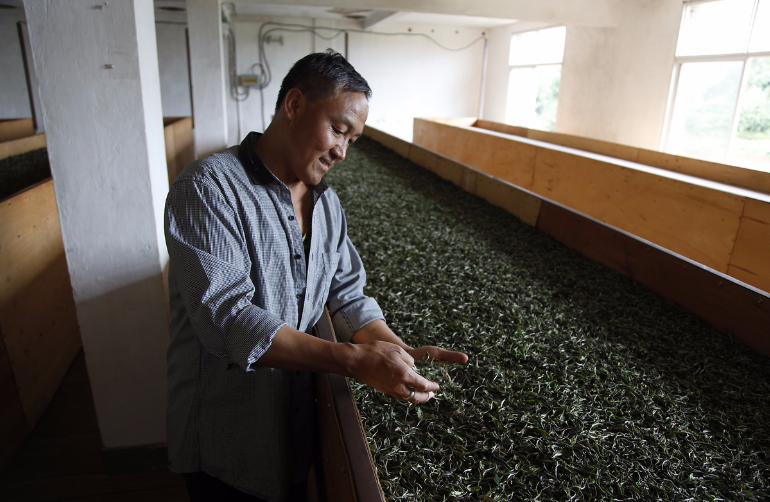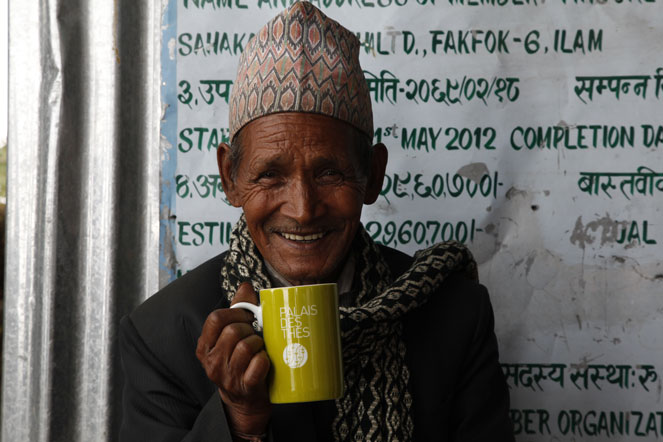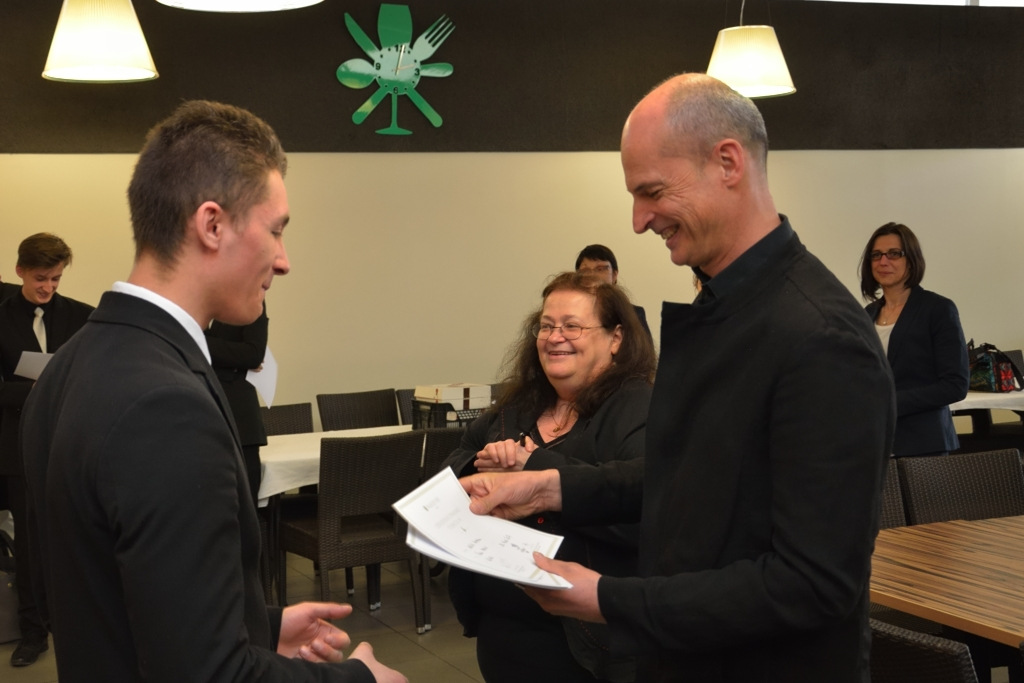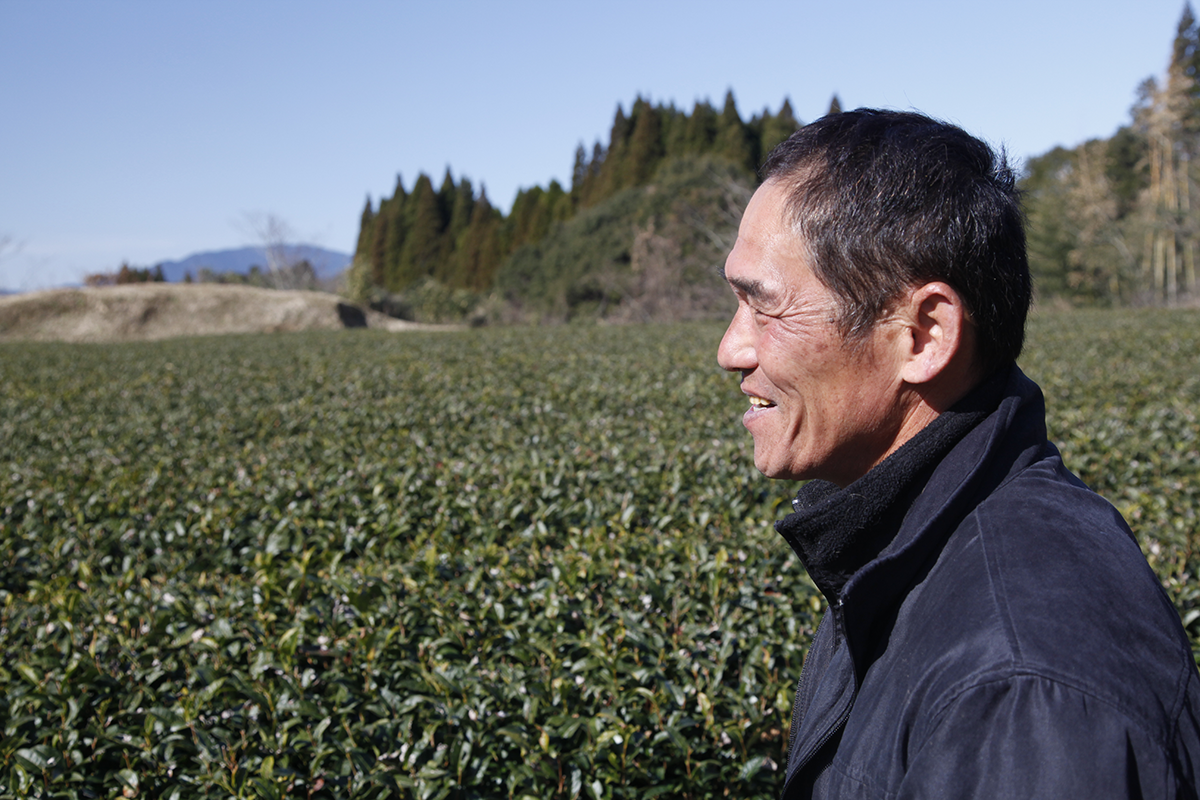I’ve known Anil for more than 10 years. Back then, he was running a beautiful tea plantation, Thaishola, in southern India. I visited him there several times, and he taught me a great deal. He made high-quality teas in the Nilgiri Mountains. Then he became an auditor for organisations that certify tea produced using methods which respect the planet and its people. His efforts were admirable. And now, thanks to his immense experience, he advises tea plantations. Recently, I visited him with a team from Palais des Thés. He was so attentive to us, and went to great lengths to arrange meetings with people he considers to be the best producers in the region. We pestered him with questions from morning till night. He also let us stay in this incredible Ootacamund Club, where we were transported 200 years back in time to the reign of Queen Victoria. He dedicated all his time to us, and never tired of our thirst for knowledge about tea. He was generous with every remark and explanation. Thank you Anil!
Tea people
Sharing my passion
In this blog, which is celebrating its seventh year, I love to talk about the work I’ve been doing for more than 30 years; my job is my passion. Part of the joy comes from sharing it in situ with my colleagues at Palais des Thés and showing them what I do every day. They accompany me on tours around the tea fields and I share with them the time I spend with farmers and planters, which is so important in my view, learning about every aspect of their work and their life. Here, from left to right, are Benoît (poor framing on my part has deprived him of his right ear), Audrey, Sylvie, Frédéric, Constance and Linda, who don’t look unhappy to be on the trip.
Who is Mr Tian?
Wen Rong Tian has had two lives: the first as a physical education teacher; the second, which began 27 years ago, as a tea producer. From the first he has kept his love of a healthy life, and follows a daily programme of vigorous exercise and a strict diet. The second came from his father, who managed a tea factory for 20 years. However, son has surpassed father: today, Wen Rong Tian is one of the main, if not the leading, producer of black tea in Yunnan. He makes excellent teas and even claims to have created the famous Yunnan Golden Buds and Golden Needle teas produced in the province. I visited him near Baoshan, where he lives. His passion lies not so much with walking though tea fields as spending all his time tasting his teas and improving production processes. He lives, sleeps, eats and breathes just a few metres from his factory. What gives him the most pride is to make some of the most amazing teas in the world, just from simple leaves. And unlike many Chinese producers, he prefers black teas to green teas, for their generous aromas and smooth presence.
Tea tasting with Manuel, “Meilleur Sommelier de France”
Named “Meilleur Sommelier de France” (“Best Sommelier of France”), Manuel Peyrondet is also interested in tea. He came to taste some premium teas with me, prepared at room temperature, meaning they were steeped for exactly an hour in water at 20°C. We talked about tea and food pairings, accompanied by Vanessa Zochetti, who was interviewing us for the next issue of Bruits de Palais. Tasting tea with a sommelier, especially Manuel, who used to be a sommelier at the Hotel George V, as well as the head sommelier at Taillevent, then at the Royal-Monceau, is a unique experience. In the world of fine food and drink, we often live in our bubble, focusing on our specialist product: wine for Manuel, tea for me. It’s really strange to move outside this world, to focus on how we respond to different textures, aromas and flavours. It leads to particularly enriching discussions.
And for those who don’t just drink tea, Manuel runs a wine club, which is an excellent way to build up a collection and attend tastings: www.chaisdoeuvre.com
(photo: Emmanuel Fradin)
Important moments in-store
It’s true that I spend a lot of time in the tea fields, but sometimes I visit the Palais des Thés stores and the teams. I tell them about my adventures, answer their questions, and we taste teas together. These are very important moments for me. The staff are always horrified when I tell them about the leeches that attach themselves to your skin during humid walks; about the whole hornets served fried, spiced and seasoned with ginger and garlic, near Xishuangbanna; about the local alcohol downed neat when you wake up, as is traditional among people living in the mountains of northern Vietnam. I also tell them about the nights I spend listening to the sounds of the jungle. My fear of tigers. I always remember one or two anecdotes, such as the monkey who stole a tourist’s bag and, while we looked on, dumbfounded, took out a passport and tore out every page, one by one. Here, I’m in Toulouse, with Océane, Marc, Léa and Florence, manager of the Toulouse and Blagnac stores, who spent a few days with me in India, on the tea plantations.
Make tea not war
I got to know Xuan Dong Wu this summer. I met him in the Ming De factory he manages and where, that day, he was overseeing the withering of the tea leaves with the greatest attention. Xuan Dong Wu loves his job. He has not always been in the tea business. He started out in the army, and fought in the Sino-Vietnamese War in the early 1980s. He then returned to the village where he was born, and where tea provides the majority of work. He makes white teas, pu erhs, and black teas that are considered the best in Yunnan. He likes to introduce new ideas, and is responsible for several of our Mao Chas, the intermediate teas used to made Pu Erh. Xuan Dong Wu is a shy man, and didn’t say much when I asked him what he wanted me to write about him here. He simply told me about his life, and what he likes. He said he likes making tea with his heart and with his efforts, he said he wanted to do his best and make the best teas possible. And then he plunged his hands back into the withering leaves, and didn’t take his eyes off them.
Tea and style
It’s true that preparing tea consists simply of placing tea leaves in contact with water, an encounter that produces a delicate, fragrant drink. The process can be more or less straightforward, more or less delicate. In China, in the space of barely 20 years, preparing tea using the gong fu method, which must be done slowly and with self-control, has become incredibly popular. It is often young women who perform the task. They are always elegant, and every movement is precise. You watch in admiration as their agile fingers trace beautiful flowing arcs in the air before depositing a few drops of the precious nectar in your tiny cup.
Rana Bahadurdiyali, founder of the Teenjure co-operative
I met Rana Bahadurdiyali a few days ago in Ilam valley, in Nepal. Twenty-four years ago, Rana founded the co-operative Teenjure, which today has no less than 234 farmers who combine their tea production. This year, Teenjure has started to produce some very good, interesting and varied teas. When I asked Rana what he wanted me to write about him, he told me how hard everyone had worked, how challenging it was for the whole community of Teenjure to start growing tea – clearing the land, planting the tea plants, building the factory and installing the equipment. Twenty-four years ago, when they began this project, they had no water, no road, no electricity. It took them two years to build the factory, Rana, aged 82, tells me, smiling.
Tomorrow’s experts
If we want staff working in hotels and restaurants to offer quality teas in the future, we need to train young people who are starting out in their careers. Reims Academy and Palais des Thés have joined forces to develop a certification course in “tea knowledge and service”. First, we trained tutors in several hospitality colleges, who then educated their students. Last week, in Reims, it was time for the exams and awarding of certificates. Congratulations to all of the students who passed. I hope it encourages them to continue to find out more about tea, and make their future customers happy.
Mr Kumada, a farmer attached to his land
I’d like to introduce you to Mr Kumada. He lives with eight cats and grows tea on seven hectares in the extreme south of Japan, high above the city of Kagoshima, far from anywhere, even the smallest village. Mr Kumada took over from his father, who was also a farmer. But he only grows tea, unlike his father who also grew tobacco, and raised cows, pigs and silkworms. When I asked him what he’d like me to talk about on my blog, Mr Kumada immediately replied that he was proud of his farming methods, and of the organic certification he has obtained. He wants to keep the environment in the best possible condition; he is responsible for it, he says.
Mr Kumada produces green teas, of course, but also a black tea, which I’ve just chosen. It’s the first time I’ve tasted such a good black tea from Japan, an interesting tasting experience. Mr Kumada’s very likeable personality does play a part in my choice: I taste all teas blind, but it increases the pleasure I take in being able to promote his excellent tea.

